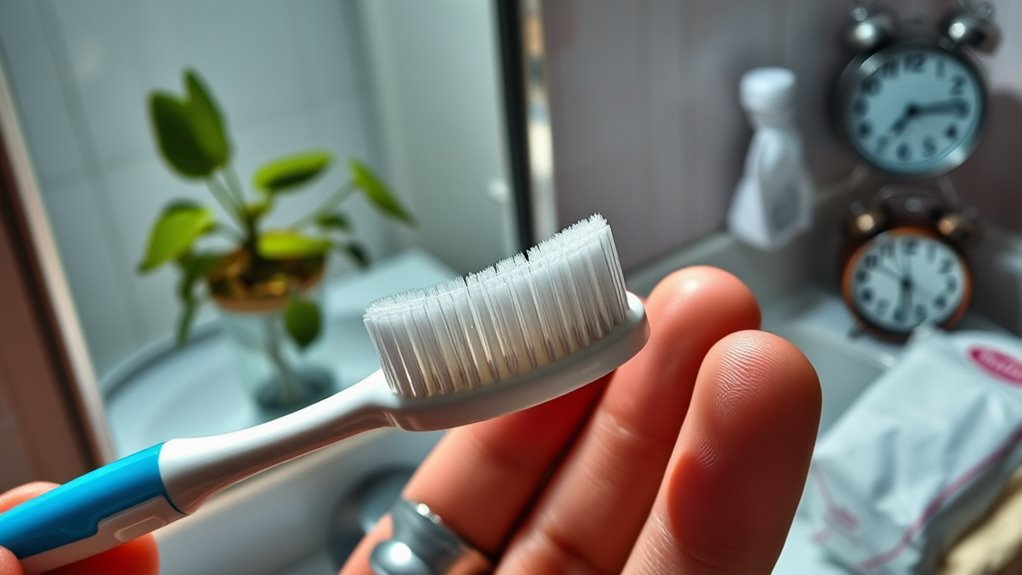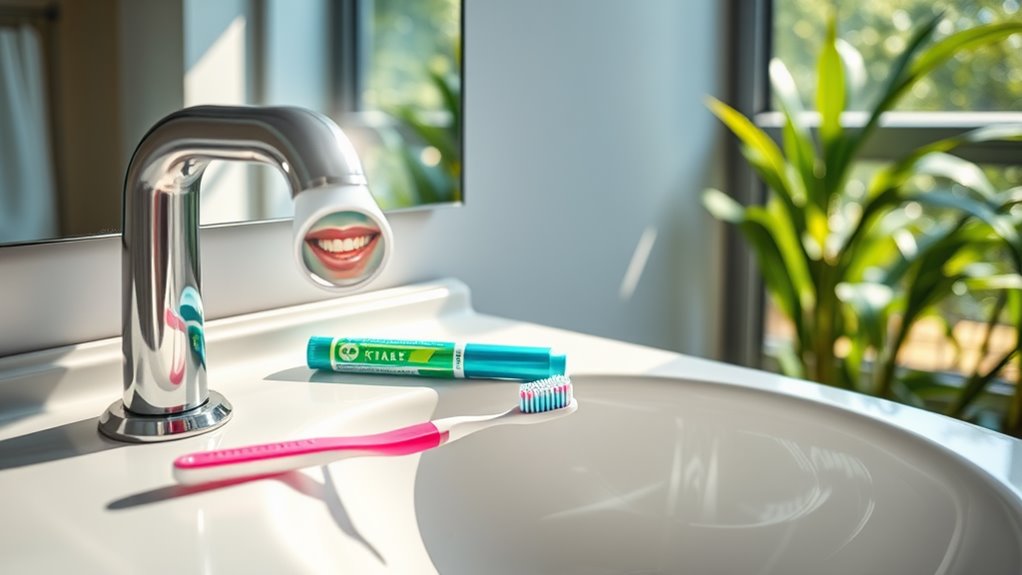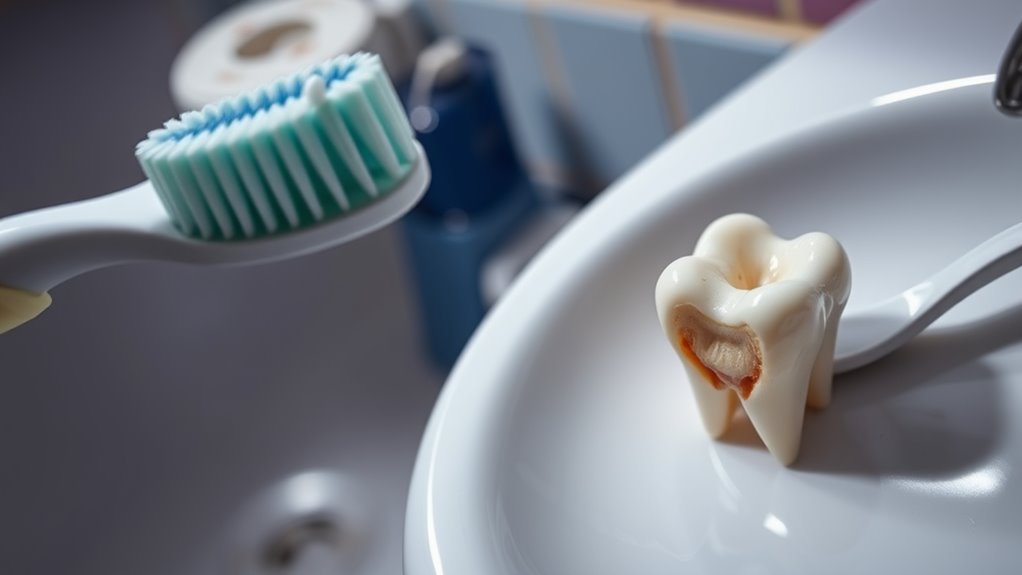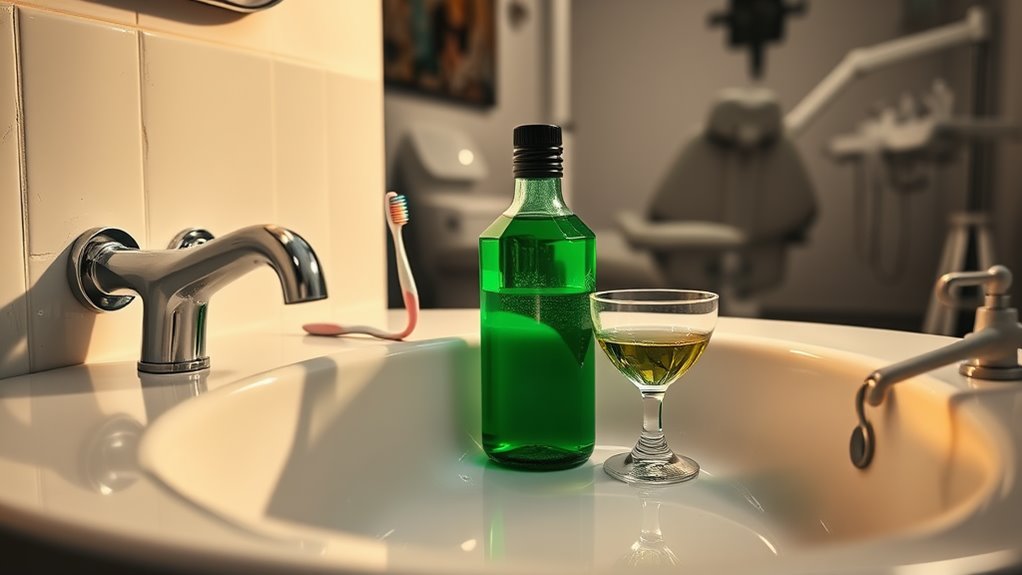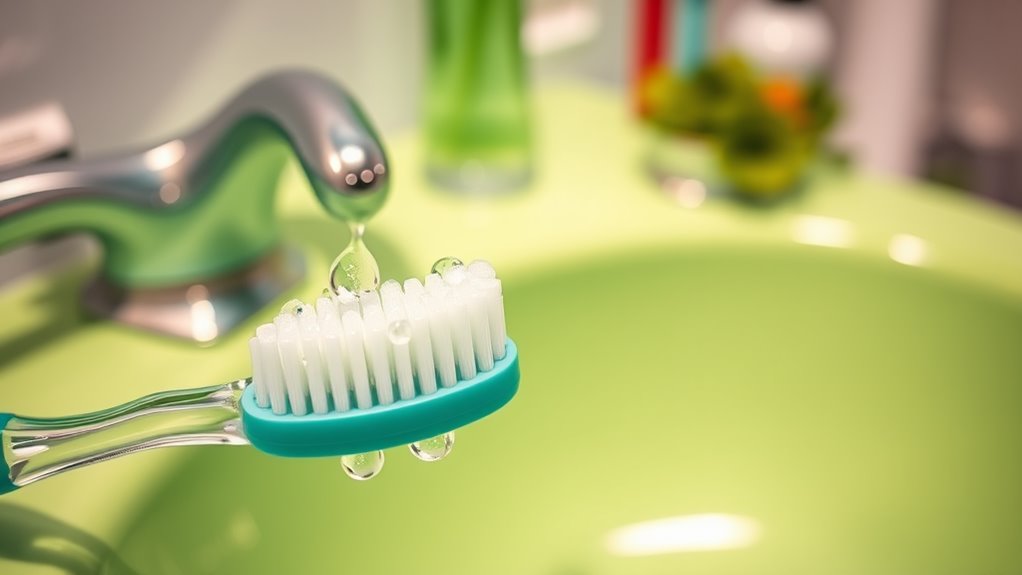My Dentist Told Me to Stop Doing This Daily Habit
Key Takeaways
- Teeth grinding, or bruxism, can lead to jaw pain and tooth damage; consider protective aids if advised by your dentist.
- Brushing too aggressively can result in gum recession; use a soft-bristled toothbrush and gentle techniques to maintain gum health.
- Neglecting to floss daily allows plaque to accumulate between teeth, increasing the risk of cavities and gum issues; make flossing a priority.
- Frequent soda consumption contributes to tooth erosion; replace sugary drinks with water or healthier alternatives to protect enamel.
- Nail biting can cause significant tooth damage; find stress-relief techniques to curb this habit and safeguard your oral health.
Understanding the Daily Habit
Understanding a daily habit is essential for recognizing its impact on your life. Harmful oral habits, like teeth grinding or aggressive brushing, can lead to significant issues over time. By identifying these behaviors, you can take steps to modify them. Evaluating your routine helps you make informed choices for better oral health, ensuring your smile remains bright and healthy for years to come. Additionally, being aware of the signs of bruxism can help you address the problem before it causes severe damage.
The Impact on Oral Health
Although many might overlook the significance of daily oral habits, they play a crucial role in your overall oral health. Neglecting proper care can lead to plaque buildup, cavities, and gum disease. These issues not only affect your smile but can also impact your overall health. Maintaining good oral hygiene can help prevent heart disease and other serious conditions linked to poor oral health.
Signs You Might Be Affected
You might be affected by this daily habit if you notice persistent bad breath or experience tooth sensitivity. Gum irritation, characterized by redness or swelling, can also signal underlying issues. Recognizing these signs early can help you take appropriate action to protect your oral health. Additionally, poor oral hygiene can lead to gum disease, which contributes to persistent bad breath.
Bad Breath Indicators
Bad breath can sneak up on anyone, often without warning, leaving you unaware of its presence until it’s too late. Here are some common indicators that you might be affected:
| Indicator | Description | Action |
|---|---|---|
| Dry Mouth | Lack of saliva can cause odor. | Stay hydrated. |
| Strong Foods | Certain foods can linger. | Maintain oral hygiene. |
| Regular Feedback | Others may notice first. | Seek advice. |
Tooth Sensitivity Symptoms
Tooth sensitivity can considerably impact your daily routine, making simple activities like eating or drinking quite uncomfortable.
You might experience sharp pain when consuming hot, cold, or sweet foods. Even brushing your teeth can trigger discomfort.
If you find these sensations affecting your quality of life, it’s essential to consult your dentist for proper diagnosis and treatment options to alleviate your symptoms effectively.
Gum Irritation Signs
Experiencing tooth sensitivity can sometimes signal deeper issues, such as gum irritation.
You might notice redness, swelling, or bleeding when you brush or floss. Persistent bad breath and a receding gum line can also indicate underlying problems.
If you’re facing these symptoms, it’s essential to consult your dentist promptly. Early intervention can prevent further complications and help maintain your oral health.
Expert Advice From Dental Professionals
Although many people underestimate the impact of daily habits on their oral health, dental professionals emphasize the importance of making mindful choices. To help you monitor your oral care, here’s a quick reference table of common habits and their potential effects:
| Habit | Potential Effect | Recommendation |
|---|---|---|
| Brushing too hard | Gum recession | Use soft-bristled brush |
| Skipping flossing | Plaque buildup | Floss daily |
| Soda consumption | Tooth erosion | Limit intake |
| Nail biting | Tooth damage | Avoid this habit |
| Grinding teeth | Jaw pain | Consult a dentist |
Additionally, be aware that dental infections can impact overall health and should be addressed promptly.
Tips to Break the Habit
To break a daily habit, start by identifying what triggers it in your routine. Once you understand these triggers, replace the habit with positive activities that align with your goals. Finally, set realistic goals to keep yourself motivated and on track for lasting change. Additionally, recognizing poor oral hygiene habits can help reinforce the need for change in your routine.
Identify Triggers for Habit
Breaking free from a daily habit often starts by pinpointing its triggers. Understanding what prompts your behavior is essential for change.
Here are four common triggers to identify:
-
Stress: Notice when stress leads to the habit.
-
Boredom: Recognize times of idleness.
-
Social Situations: Be aware of peer influence.
-
Routine: Examine daily patterns that prompt the habit.
Replace With Positive Activities
Once you’ve identified the triggers for your habit, the next step is to replace that behavior with positive activities.
Consider engaging in a hobby, exercising, or practicing mindfulness whenever you face a trigger.
These alternatives not only distract you but also promote your well-being.
Gradually, incorporating these fulfilling activities can help divert your focus from the unwanted habit and create a healthier routine.
Set Realistic Goals
Setting realistic goals is essential when you’re trying to break a habit. Start by defining clear, achievable objectives.
Here are some tips to help you:
- Break your goal into small steps.
- Set a timeline for each step.
- Track your progress regularly.
- Reward yourself for reaching milestones.
Implement these strategies to increase your chances of successfully overcoming the habit.
Alternative Healthy Practices
While it might be tempting to stick with longstanding habits, incorporating alternative healthy practices can considerably enhance your well-being.
Consider replacing sugary snacks with fruits, utilizing a water bottle to guarantee hydration, or practicing mindfulness through meditation. Additionally, being mindful of sugary snacks can protect your child’s dental health and reduce cavity risk.
These small steps help improve both your physical and mental health, fostering a more balanced lifestyle. Embracing change now can lead to meaningful improvements in your daily routine.
Long-term Benefits of Change
When you embrace change in your daily habits, you open up a multitude of long-term benefits that can greatly enhance your quality of life.
Consider these advantages:
- Improved oral health
- Greater physical well-being
- Increased energy levels
- Enhanced mental clarity
These changes not only contribute to a healthier lifestyle but also foster lasting improvements in overall happiness and self-esteem.
